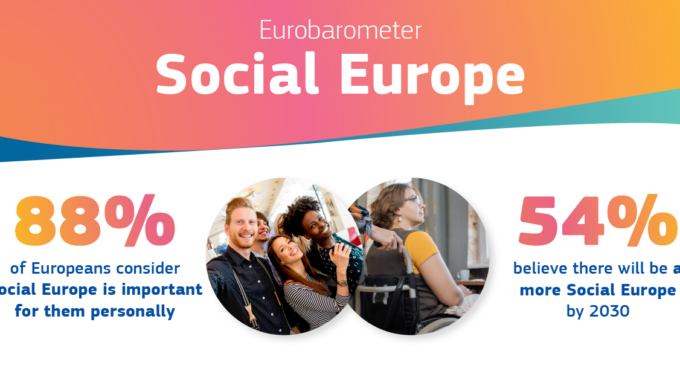
Council Presidency – Technology can build wellbeing and sustainable growth
Press Release of the Council of the EU
Finland’s Presidency of the Council of the European Union wanted to generate dialogue on the interaction of people’s wellbeing and economic growth. The Council of the European Union adopted conclusions on the economy of wellbeing at the second Employment, Social Policy, Health and Consumer Affairs Council (EPSCO) under Finland’s Presidency on 24 October 2019.
The Council conclusions on the Economy of Wellbeing seek to put people and their wellbeing at the centre of policy and decision-making. People’s wellbeing and sustainable economic growth are mutually reinforcing, not contradictory goals.
Health, an essential determinant and component of wellbeing, is often created through education, social support and active daily life, not in healthcare. But healthcare guides promotion of health and treats us when we get sick. Improved health helps us to learn, work and enjoy life; its impact goes well beyond its effect on the growth of the gross domestic product.
Technology plays an essential role in health as other areas of life. From artificial joints and AI-assisted radiology to fitness trackers and health apps, the fast pace of technological development enables creation of unprecedented levels of health and wellbeing. Electronic medical record is the cornerstone in hospitals and health centres. Digital information systems are crucial in creating integrated and personalised care, bringing healthcare and social care closer to each other.
Sustainable growth cannot be imagined without health and wellbeing – but also not without digital development.
Digital, robotics and AI are new wellbeing technologies
Healthcare is on the doorstep of digital transformation as many other sectors in the society. We need to be brave.
Due to the rapid change of technologies, the whole population needs to have access to life-long acquisition of digital skills and competences. Not only to meet the challenges of digitalisation but also to seize the opportunities of new forms of work.
Technologies need to be accessible to all. Indeed according to many studies, the use of digital tools depends on skills and knowledge and not on age as such. In the fast growing European Silver Economy, the industry must adapt their technologies to the needs of older people and disadvantaged groups. The society must support in particular their digital literacy.
Robots and artificial intelligence hold the promise to help people to lead healthy lives, recover from illnesses, live independently at home, and bounce back after an injury. Their huge potential and still obscure nature underlines the necessity to follow the ethical guidelines on trustworthy AI, which have been proposed in the European Union.
These innovative technological developments are changing the way people’s wellbeing can be promoted and how health and social services are delivered. This has the potential to increase the cost-effectiveness, efficiency and quality of services as well as to counter inequalities in access and outcomes.
Digital society to benefit people’s wellbeing
Technologies alone, however advanced, are not yet solutions. The technology is a part of the solution, but needs a solid legal framework, well-organised workflows and trained professionals and well-informed citizens. To develop such well-functioning solutions, ecosystems based on seamless and persistent collaboration between public and private stakeholders are necessary. These ecosystems can be local but also span across borders.
Europe needs a stronger (digital) single market. The idea of a European Health Data Space has been launched by the European Commission to speed up achieving interoperable digital infrastructures in Europe. Building on the current work on the cross-border exchange of health data, the European Health Data Space could both enable seamless care for citizens and provide a huge impetus for research. The Digital Single Market initiative to create a secure and privacy-protected knowledge base of more than a million sequenced genomes shows how new information can be made available to healthcare and research, across borders.
The human-centred economy of wellbeing and ethically sound data economy are competitive advantages for Europe.





